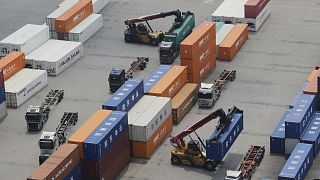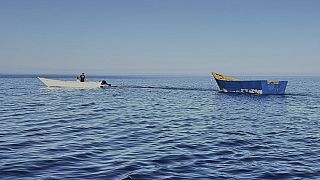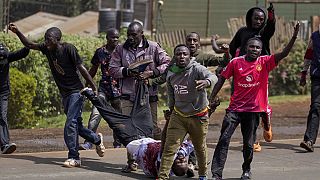UN Security Council
Concluding a four-day mission to Democratic Republic of the Congo (DRC), the United Nations High Commissioner for Human Rights, Zeid Ra’ad Al Hussein, commended the country’s efforts to strengthen human rights but cautioned that some of these advances may be under threat, especially what he saw as repression against opposition parties in the coming elections.
Zeid called for the release of people he considers political prisoners in Democratic Republic of Congo as the government cracks down on dissent ahead of a contentious electoral period, adding that he would submit to the government in the coming days a list of people he believes should be released immediately.
“I can only be satisfied when these commitments materialize. Firstly, I note a commitment to intensify our work together on human rights. In this regard, I will submit a list of those detained persons we believe should be released immediately. I have been told that there will now be a rapid transfer of detainees from the holding cells of the ANR intelligence services to ordinary detention centres where civilian magistrates will make determinations on the status of their cases. I will be attentively monitoring this development. I’m also hopeful we will be given full and unfettered access to the ANR cells,” he said.
Zeid declined to say how many people or what names would be on the list, but added that he would consider making the names public if the government did not make swift progress.
The government spokesman and justice minister were not immediately available for comment but have denied in the past that there are any political prisoners in Congo.
Political tensions are high in Congo before a scheduled November presidential election.
President Joseph Kabila, who has been in power since 2001, is required by the constitution to step down this year but the government says logistical and budgetary constraints make it unrealistic to hold the election on time.
Opponents of Kabila accuse him of purposely blocking the election in order to cling to power, but Kabila has repeatedly said delays are owing to financial and logistical challenges.
“I truly do not believe that the elections can still take place in November, unless there is a significant contribution by the international committee to try and help the government and to try to find faster process for us to organize the elections. But technically speaking, that seems almost impossible to me,” said one Kinshasa resident, Oscar Tshibala.
“Here in Congo, there is a negative political environment. Whenever the opposition wants to organise a protest march, it has to be one with positive speech. But being in the opposition doesn’t make you any less Congolese. There has never been a day when the opposition has ever accepted that the majority does do some good, and there has been no day when the majority has even been able to congratulate someone from the opposition. Both sides poison the atmosphere,” said another Kinshasa resident, Freddy Bonganga.
In a report last December, the U.N. human rights office in Congo said dozens of political opposition leaders, pro-democracy activists and human rights advocates have been arbitrarily detained for political reasons.
U.N. experts have warned delays in holding elections could lead to widespread instability in a country where millions died in regional wars from 1996-2003.











00:55
The Democratic Republic of Congo celebrates the centenary of Patrice Lumumba's birth
01:22
World will have to learn to live with heatwaves, UN says
01:39
Sustainable development financing conference opens in Seville
01:52
In Goma, solar power brings light and hope in Ndosho neighbourhood
01:35
UN and Haitian officials mark one year since Kenyan police arrived to support security efforts
01:42
Gaza residents welcome rare organized aid delivery after months of chaos and hunger